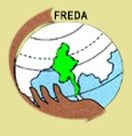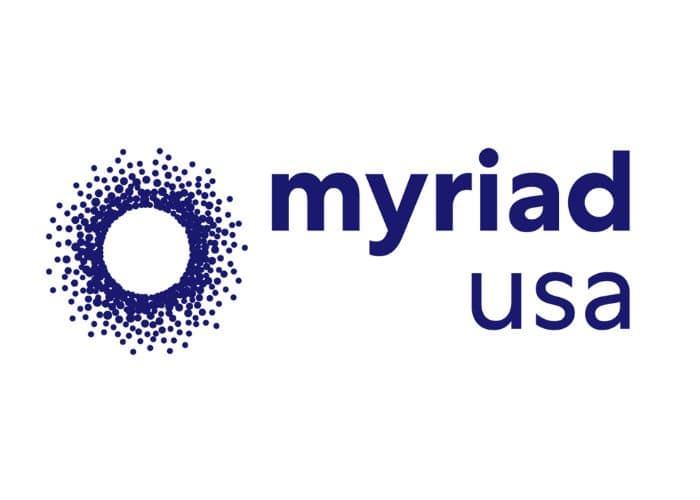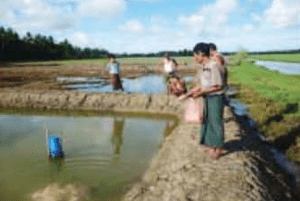- About AVPN
-
-
-
About AVPN
Who We Are
We are a leading ecosystem builder that is increasing the flow of financial, human, and intellectual capital from Asia and around the world into the social sector in Asia. We provide a network of peers, rigorous learning programmes, and innovative capital mobilization opportunities that make sure resources are more effectively deployed.
-
-
-
- Members
-
-
-
Membership Benefits
Unrestricted access to AVPN research reports and case studies
Access market-specific snapshots and opportunities
Increased visibility for events, programs and insights via AVPN website, blog, newsletters and social media channels
Leverage the AVPN platform to bring under-represented social issues top of mind for more than 600 social investors
-
-
-
- Resources
-
-
-
Resources
Highlights of the week
Trust-Based Philanthropy
In the face of increasingly complex and, sometimes rapidly, changing needs on the ground, it is crucial to take a step back and reconsider the status quo.
APAC Sustainability Seed Fund 2.0
By leveraging the success of the first round of the APAC Sustainability Seed Fund, AVPN continues to mobilise continuum of capital into supporting climate solutions in the region.
Faith and Giving
Faith, and the values, belief systems, moral codes, and religious doctrines, that underlie it, shape much of philanthropy across the world. From addressing needs in underserved communities to investing in sustainable energy solutions, faith-aligned givers are demonstrating that compassion can be a catalyst for a more just and equitable world. However, the fundamental drivers of faith-aligned giving often remain unexamined.
-
-
-
- Markets
-
-
-
Markets
We are a leading ecosystem builder that is increasing the flow of financial, human, and intellectual capital from Asia and around the world into the social sector in Asia. We provide a network of peers, rigorous learning programmes, and innovative capital mobilization opportunities that make sure resources are more effectively deployed.
Explore Markets
-
-
-
- Impact Communities
-
-
-
Impact Communities
-
-
-
- Capital Mobilisation
-
-
-
Capital Mobilisation
Featured Deals
Socio-Economic Empowerment of Women
Climate Action and Environment, Education, Financial Inclusion, Gender, Livelihood and Poverty Alleviation
Solve Education: Education through Innovative Learning Platform
Education, Employability, Livelihood and Poverty Alleviation
Lotus Petal Sr. Sec School, Gurugram
Education, Employability, Health
IT Training Against Poverty in Cebu
Education, Employability, Livelihood and Poverty Alleviation
IT Vocational Training Against Poverty
Education, Employability, Livelihood and Poverty Alleviation
Gigatonne: Addressing Problems within the Carbon Credits Market
Climate Action and Environment, Financial Inclusion, Gender, Livelihood and Poverty Alleviation
-
-
-
- Events
-
-
-
Events
Upcoming Signature EventsAVPN Global Conference 2024
23 April 2024
-
25 April 2024
Signature Event
Upcoming Events
Restoring Equilibrium: SVCA 2024 Annual Conference – Seeking Balance in A Turbulent World
16 May 2024
-
-
-
Disaster Preparedness in Ayeyarwady Region
The Disaster Preparedness in Ayeyarwady Region project will implement essential activities relating to disaster preparedness and disaster risk reduction in storm-hit villages; Saving lives and livelihood assets as well as improving living standards.
By

Forest Resource Environment Development and Conservation Association (FREDA)
Click here to learn more about the Impact Organisation
This is member exclusive
content. Click here to unlock
Social causes
Beneficiaries
SDGs covered
Endorsed by
Market of Implementation
- Myanmar
Problem
Climate change represents a major challenge for Myanmar as it is considered as the 2nd most threaten country in the world according to German Watch's report. The country is highly vulnerable to extreme natural events (cyclone, flood, high temperature, drought and sea rise level) and deforestation. Climate change impacts directly Myanmar's economic sector, mainly based on agriculture and carries social consequences with increasing tensions over natural resources, food and space. In 2008, Nargis Cyclone which was the worst natural disaster in the history of Myanmar struck Ayeyarwady and Yangon Regions losing about 84,000 lives, missing about 54,000 people and severely affecting about 2.4 million people according to Post-Nargis Joint Assessment. During the Cyclone, the strong wind tore down trees, power lines and rural houses, while the accompanying storm surge submerged many villages. The people of the Delta are primarily farmers, fishermen and laborers, most of them are poor and landless. Due to the lack of strong buildings and trees, Labutta, Bogale, Pyapon, Mawgyun and Dedaye lost many lives during the cyclone, contributing 93 percent of total loss. The rest also lost their housing and livelihood assets such as boats and fishing equipment, livestock and draught animals, agricultural equipment, paddy seed stock, etc. The storm surge also caused substantial damage to aquaculture ponds, agricultural crops and soil, community rain water ponds and open dug wells. FREDA has been implementing some essential activities relating to Disaster Preparedness and Disaster Risk Reduction in seriously storm-hit villages in Ayeyarwady Region with financial assistance of Bread for the World. Since the affected areas are large and situated in remote areas, FREDA would like to continue such kind of many as possible.
Solution
(1) Mangrove Reforestation : During the Cyclone Nargis stuck in Myanmar in May 2008, some 17,000 ha of natural forest and 21,000 ha of forest plantations were damaged in Ayeyarwady Delta. The strong wind and tidal surge became more severe due to the lack of forest cover along the coastal area causing about 140,000 people dead and missing. Hence reforestation is necessary in deforested area as disaster preparedness. (2) Community Forests : Community Forests should be established in cooperation with Forest Department for local use as fuel wood and posts and additional income from surplus materials, beside its ecosystem services for disaster preparedness livelihood sustainability, as well as climate change mitigation. As community forests are beneficial to local community for its socio-economical stability, most people are interested in forming community forests near their villages, realizing its ecosystem's services. FREDA has more than 15 years experience in forming community forests in Delta mangrove areas and hence would like to fulfill the requirement of the remaining villages. (3) High ground-cum-pond (HGP) : Ayeyarwady delta is flat low lying area and most of the people and animals were dead in Cyclone Nargis due to lack of high ground where they can save their lives from storm surge. Hence, based on our previous experience under DKH Project No. K-MMR-0912-0003, HGP should be constructed in most vulnerable areas in order to save the lives of community and their livelihood assets. On the other hand, rain water could also be collected during rainy season to provide drinking water to the community in the dry season. (4) Save 60 cooking stoves : Ayeyarwady Delta area is facing serious problem of deforestation and forest degradation due to over cutting of fuelwoods for daily cooking. FREDA has been established mangrove plantations and community forests in the project area since 1999-2000 up to now for domestic use and environmental conservation. FREDA also introduced save 60 cooking stoves, based on the German Design, in order to save about 60 percent of fuel wood consumption. Based on the previous experience, it is learnt that the community prefer to use it as it saves not only fuel wood consumption but their money and time too. FREDA cooking stoves are more useful in wood deficit areas as small wood sticks, dried leaves, rice husk and other forms of agricultural wasted can be substituted for fuel wood. (5) Awareness and training : Short training courses and awareness campaign are essential in all townships on environmental and Disaster Risk Reduction, Livelihoods and community development. Depending on the fund available, short training courses will be provided as many as possible to active young people and educative lectures will be given to all communities regardless of religion, race and gender. In order to achieve the successful outcome of the project activities in the targeted townships the project budget is estimated to be about USD 600,000 in 4 years from 2017 to 2020.

















 (1) Mangrove Reforestation : During the Cyclone Nargis stuck in Myanmar in May 2008, some 17,000 ha of natural forest and 21,000 ha of forest plantations were damaged in Ayeyarwady Delta. The strong wind and tidal surge became more severe due to the lack of forest cover along the coastal area causing about 140,000 people dead and missing. Hence reforestation is necessary in deforested area as disaster preparedness.
(2) Community Forests : Community Forests should be established in cooperation with Forest Department for local use as fuel wood and posts and additional income from surplus materials, beside its ecosystem services for disaster preparedness livelihood sustainability, as well as climate change mitigation. As community forests are beneficial to local community for its socio-economical stability, most people are interested in forming community forests near their villages, realizing its ecosystem's services. FREDA has more than 15 years experience in forming community forests in Delta mangrove areas and hence would like to fulfill the requirement of the remaining villages.
(3) High ground-cum-pond (HGP) : Ayeyarwady delta is flat low lying area and most of the people and animals were dead in Cyclone Nargis due to lack of high ground where they can save their lives from storm surge. Hence, based on our previous experience under DKH Project No. K-MMR-0912-0003, HGP should be constructed in most vulnerable areas in order to save the lives of community and their livelihood assets. On the other hand, rain water could also be collected during rainy season to provide drinking water to the community in the dry season.
(4) Save 60 cooking stoves : Ayeyarwady Delta area is facing serious problem of deforestation and forest degradation due to over cutting of fuelwoods for daily cooking. FREDA has been established mangrove plantations and community forests in the project area since 1999-2000 up to now for domestic use and environmental conservation. FREDA also introduced save 60 cooking stoves, based on the German Design, in order to save about 60 percent of fuel wood consumption. Based on the previous experience, it is learnt that the community prefer to use it as it saves not only fuel wood consumption but their money and time too. FREDA cooking stoves are more useful in wood deficit areas as small wood sticks, dried leaves, rice husk and other forms of agricultural wasted can be substituted for fuel wood.
(5) Awareness and training : Short training courses and awareness campaign are essential in all townships on environmental and Disaster Risk Reduction, Livelihoods and community development. Depending on the fund available, short training courses will be provided as many as possible to active young people and educative lectures will be given to all communities regardless of religion, race and gender. In order to achieve the successful outcome of the project activities in the targeted townships the project budget is estimated to be about USD 600,000 in 4 years from 2017 to 2020.
(1) Mangrove Reforestation : During the Cyclone Nargis stuck in Myanmar in May 2008, some 17,000 ha of natural forest and 21,000 ha of forest plantations were damaged in Ayeyarwady Delta. The strong wind and tidal surge became more severe due to the lack of forest cover along the coastal area causing about 140,000 people dead and missing. Hence reforestation is necessary in deforested area as disaster preparedness.
(2) Community Forests : Community Forests should be established in cooperation with Forest Department for local use as fuel wood and posts and additional income from surplus materials, beside its ecosystem services for disaster preparedness livelihood sustainability, as well as climate change mitigation. As community forests are beneficial to local community for its socio-economical stability, most people are interested in forming community forests near their villages, realizing its ecosystem's services. FREDA has more than 15 years experience in forming community forests in Delta mangrove areas and hence would like to fulfill the requirement of the remaining villages.
(3) High ground-cum-pond (HGP) : Ayeyarwady delta is flat low lying area and most of the people and animals were dead in Cyclone Nargis due to lack of high ground where they can save their lives from storm surge. Hence, based on our previous experience under DKH Project No. K-MMR-0912-0003, HGP should be constructed in most vulnerable areas in order to save the lives of community and their livelihood assets. On the other hand, rain water could also be collected during rainy season to provide drinking water to the community in the dry season.
(4) Save 60 cooking stoves : Ayeyarwady Delta area is facing serious problem of deforestation and forest degradation due to over cutting of fuelwoods for daily cooking. FREDA has been established mangrove plantations and community forests in the project area since 1999-2000 up to now for domestic use and environmental conservation. FREDA also introduced save 60 cooking stoves, based on the German Design, in order to save about 60 percent of fuel wood consumption. Based on the previous experience, it is learnt that the community prefer to use it as it saves not only fuel wood consumption but their money and time too. FREDA cooking stoves are more useful in wood deficit areas as small wood sticks, dried leaves, rice husk and other forms of agricultural wasted can be substituted for fuel wood.
(5) Awareness and training : Short training courses and awareness campaign are essential in all townships on environmental and Disaster Risk Reduction, Livelihoods and community development. Depending on the fund available, short training courses will be provided as many as possible to active young people and educative lectures will be given to all communities regardless of religion, race and gender. In order to achieve the successful outcome of the project activities in the targeted townships the project budget is estimated to be about USD 600,000 in 4 years from 2017 to 2020.